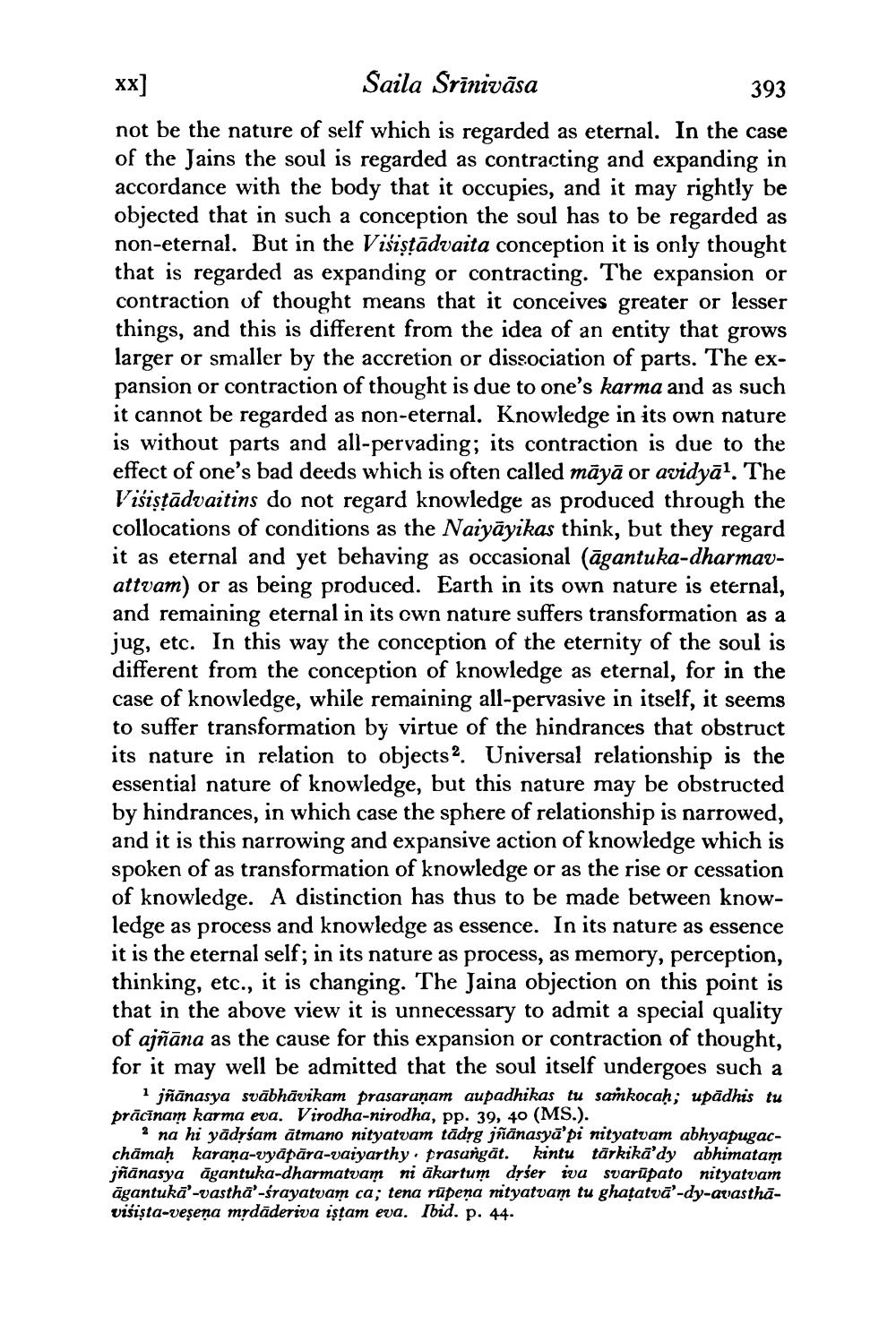________________
Saila Srīnivāsa
393 not be the nature of self which is regarded as eternal. In the case of the Jains the soul is regarded as contracting and expanding in accordance with the body that it occupies, and it may rightly be objected that in such a conception the soul has to be regarded as non-eternal. But in the Višistādvaita conception it is only thought that is regarded as expanding or contracting. The expansion or contraction of thought means that it conceives greater or lesser things, and this is different from the idea of an entity that grows larger or smaller by the accretion or dissociation of parts. The expansion or contraction of thought is due to one's karma and as such it cannot be regarded as non-eternal. Knowledge in its own nature is without parts and all-pervading; its contraction is due to the effect of one's bad deeds which is often called māyā or avidyāl. The Višistādvaitins do not regard knowledge as produced through the collocations of conditions as the Naiyāyikas think, but they regard it as eternal and yet behaving as occasional (āgantuka-dharmavattvam) or as being produced. Earth in its own nature is eternal, and remaining eternal in its own nature suffers transformation as a jug, etc. In this way the conception of the eternity of the soul is different from the conception of knowledge as eternal, for in the case of knowledge, while remaining all-pervasive in itself, it seems to suffer transformation by virtue of the hindrances that obstruct its nature in relation to objects 2 Universal relationship is the essential nature of knowledge, but this nature may be obstructed by hindrances, in which case the sphere of relationship is narrowed, and it is this narrowing and expansive action of knowledge which is spoken of as transformation of knowledge or as the rise or cessation of knowledge. A distinction has thus to be made between knowledge as process and knowledge as essence. In its nature as essence it is the eternal self; in its nature as process, as memory, perception, thinking, etc., it is changing. The Jaina objection on this point is that in the above view it is unnecessary to admit a special quality of ajñāna as the cause for this expansion or contraction of thought, for it may well be admitted that the soul itself undergoes such a
1 jñānasya svābhāvikam prasaranam aupadhikas tu samkocah; upādhis tu prācīnam karma eva. Virodha-nirodha, pp. 39, 40 (MS.).
2 na hi yādrśam ātmano nityatvam tādrg jñānasyā'pi nityatvam abhyapugacchāmaḥ karana-vyāpāra-vaiyarthy. prasangāt. kintu tärkikā'dy abhimatam iñānasva àgantuka-dharmatvam ni akartum dyser ivu svarūpato nityatvam āgantukā-vasthā'-śrayatvam ca; tena rūpena mityatvam tu ghatatvā'-dy-avasthāvisista-veșeņa mīdāderiva istam eva. Ibid. p. 44.




